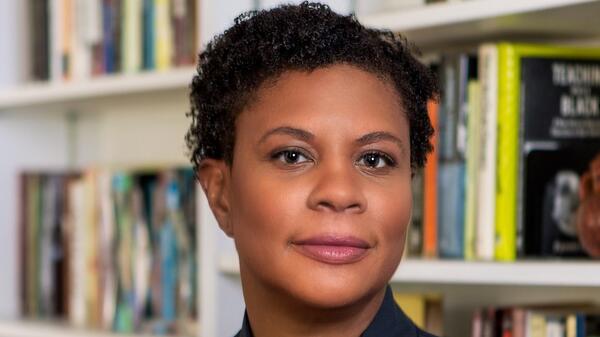
Next level visionaries
Alondra Nelson
Widely known for her scholarship at the intersection of science, technology, and society, Alondra Nelson holds the Harold F. Linder Chair in the School of Social Science at the Institute for Advanced Study.
Between 2021–23, Nelson was deputy assistant to President Joe Biden and acting director of the White House Office of Science and Technology Policy (OSTP). Including Nelson in the list of 10 People Who Shaped Science, Nature said of her OSTP tenure that “this social scientist made strides for equity, integrity and open access.”
In 2023, Nelson was nominated by the White House and appointed by United Nations Secretary-General António Guterres to serve on the UN High-Level Advisory Body on Artificial Intelligence, and was named to the inaugural TIME100 list of the most influential people in the field of AI. As a distinguished senior fellow at the Center for American Progress and science and technology policy advisor, she has also provided guidance to local, state, and federal governments, multilateral and intergovernmental organizations, legislators, civil society institutions, and others.
Nelson was previously president and CEO of the Social Science Research Council. For a decade, she was on the faculty of Columbia University, where she served as the inaugural Dean of Social Science, leading the first strategic planning process for the social sciences and working with faculty to envision and set long-term research priorities. Nelson began her academic career on the faculty of Yale University and there received the Poorvu Award for Interdisciplinary Teaching Excellence.
Nelson’s scholarship offers a critical and innovative approach to the social sciences in fruitful dialogue with other disciplines. Her major research contributions are situated at the intersection of racial formation and social citizenship, on the one hand, and emerging scientific and technological phenomena on the other. She has connected these dimensions in award-winning and acclaimed publications including, most recently, The Social Life of DNA: Race, Reparations, and Reconciliation after the Genome. Nelson is currently completing a book on science and technology policy in the Obama and Biden administrations.
Her scholarship has contributed to national policy discussions on inequality and on the social implications of emerging technologies in Science, PLOS: Computational Biology, Genetics in Medicine, PLOS: Medicine, and the American Journal of Public Health. Her essays, reviews, and commentary have appeared in The New York Times, The Washington Post, The Wall Street Journal, Nature, Foreign Policy, Le Nouvel Observateur, and Foreign Affairs, and on CNN, National Public Radio, BBC, the New Yorker Radio Hour, and PBS Newshour, among other venues.
Nelson is a member of the American Academy of Arts and Sciences, the American Association for the Advancement of Science, the American Philosophical Society, the National Academy of Medicine, and the Council on Foreign Relations. She is the recipient of honorary degrees from Northeastern University, Rutgers University, and the City University of New York. Her honors also include the Federation of American Scientists Public Service Award, the Sage-CASBS Award for “outstanding achievement in the behavioral and social sciences that advances our understanding of pressing social issues,” and the inaugural Friedrich Schiedel Prize for Social Sciences and Technology from the Technical University of Munich.
